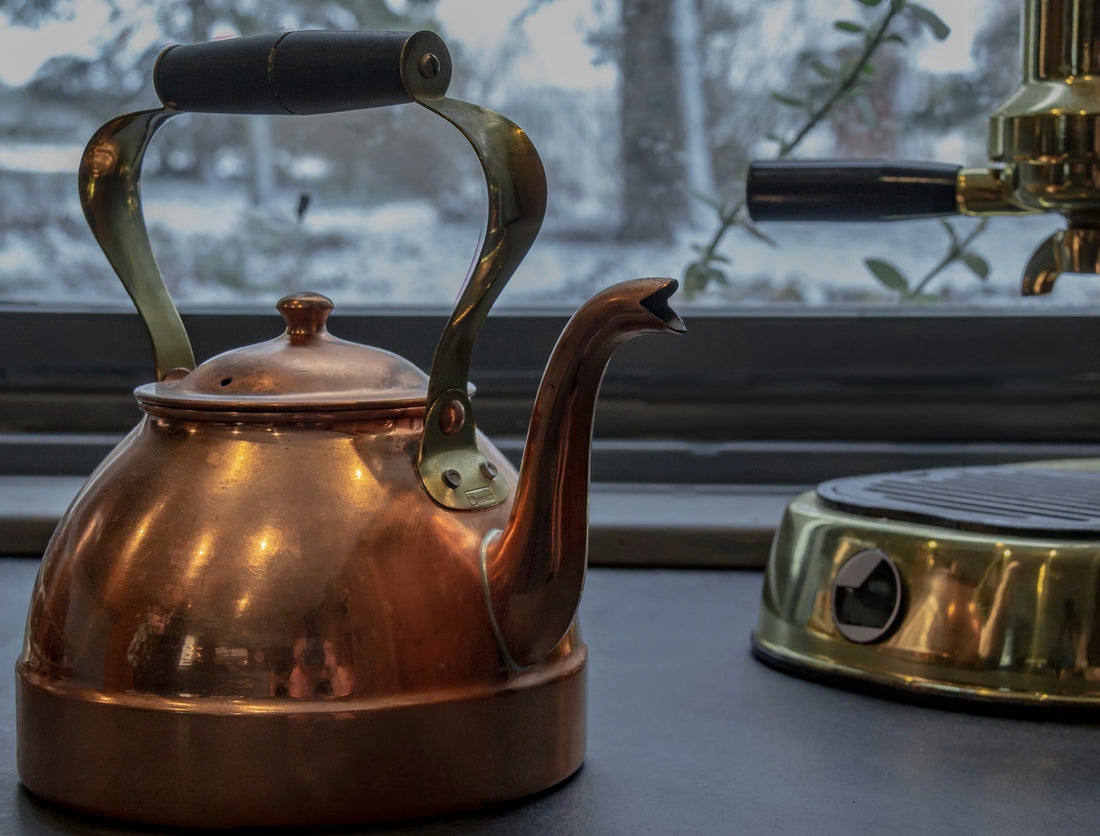Bringing back the luster to the bronze, copper and gold in your home doesn’t have to just be a gleam in your eye. From the stainless steel appliances in the kitchen to brass fixtures in the bathroom, your metals can be restored to their former glory. After all, while metal is durable, it still requires regular attention. Unfortunately, many conventional metal cleaning products contain harsh chemicals that can be harmful to the environment and our health.
The good news is, with the use of natural ingredients and sustainable methods, we have a few eco-friendly tips and techniques that will help you achieve sparkling results while minimizing your environmental impact. Here’s how to clean metal —from cleaning and polishing brass and copper to buffing up stainless steel and gold-plated valuables.

How to clean brass
Brass items come in many forms — from door knobs and fixtures to decorative pieces and coffee tables. Like silver, this metal tarnishes when its metal components, copper and zinc, are exposed to oxygen. To clean tarnished brass items around your home, start by creating a paste that is equal parts lemon juice and baking soda. Apply the paste to the tarnished areas, scrub gently with a soft cloth, and rinse with water. If that doesn’t do the trick, try rubbing the surface with a cloth soaked in vinegar or lemon juice. Finish by buffing the brass with a clean, dry cloth to bring back its stylish shine.
How to clean copper pots
An essential mineral for the body, copper is particularly popular in the kitchen. While copper pots, pans, and utensils can develop a beautiful patina with age, they also require occasional cleaning to maintain their appearance.
To clean copper naturally, sprinkle salt over the surface of the item and then rub it with half a lemon. The acidity of the lemon juice combined with the abrasiveness of the salt will help remove the tarnish and restore the copper’s unique shine. Rinse the item thoroughly with water and dry it with a soft cloth.

How to clean bronze
Bronze statues, sculptures, and detailing add a touch of elegance to any space but can also collect dirt and grime over time. To clean this metal at home without harsh chemicals, mix equal parts white vinegar or lemon juice with baking soda to create a paste. Apply the paste to the bronze surface and let it sit for several hours or overnight. Then, rinse the bronze thoroughly with water and buff it with a soft cloth to bring back its natural shine.

How to clean stainless steel appliances
Stainless steel appliances and fixtures are popular for their durability and sleek appearance but can show fingerprints and smudges easily. Luckily, you can combat build-up with a few sustainable cleaning tips for metal. To clean stainless steel naturally, fill a spray bottle with equal parts water and vinegar. Spray the solution onto the stainless steel surface and wipe it clean with a microfiber cloth, following the grain of the metal. For stubborn stains, sprinkle baking soda onto a damp cloth and scrub gently in circular motions. Rinse with water and dry with a clean cloth for a streak-free shine.
How to clean gold-plated items
Whether it’s gold-plated jewelry or decor, these items require gentle care to prevent scratching or dulling the finish. To restore your gold, mix a few drops of mild dish soap with warm water. Dip a soft-bristled toothbrush into the soapy water and gently scrub the gold-plated surface, paying extra attention to any intricate details or crevices. Rinse the item thoroughly with water and pat it dry with a soft cloth. For gold, you want to avoid using abrasive cleaners or brushes that could damage the gold plating.
How to clean cast iron
A favorite for cooking, cast iron needs to be cleaned without harsh chemicals. Otherwise, you can remove the seasoning and damage the metal itself. To clean your cast iron skillet, make a sandy paste of baking soda and water and scrub with a soft-bristle brush or scouring pad. Rinse and repeat as needed. You don’t want to soak cast iron in water as this can form rust. Soap is also a no-go as it can remove the oils and seasoning.
How to remove rust
When considering how to clean metal, rust can be a major issue. It can certainly put a damper on the appearance of your metal items and surfaces, but it’s not just a surface-level problem. At its chemical level, rust occurs when metal is exposed to oxygen and moisture. It’s a form of corrosion that slowly eats at the rusted metal surface and leads to weakness in the mineral.
Luckily, rust doesn’t have to be permanent. There are several eco-friendly methods for removing rust and restoring your metal to its original condition. One effective technique is to create a paste using equal parts of baking soda and water. Apply the paste to the rusted areas and let it sit for several hours or overnight. Then, scrub the surface with a wire brush or abrasive pad to loosen the rust.
From there, you’ll want to rinse with water and repeat the process as necessary. For the most stubborn rust, you can also try soaking the item in a mixture of vinegar and lemon juice or using a commercial rust remover formulated with natural ingredients. However, with a little effort and the right approach, you can say goodbye to rust and restore its original, shining state.
By following these eco-friendly tips on how to clean metal, you’ll quickly learn you don’t have to rely on harsh chemicals and synthetic cleaners. By using natural ingredients and eco-friendly methods, you can achieve sparkling results while also curbing carbon emissions. Whether you’re tackling stainless steel appliances, brass fixtures, or bronze detailing, these techniques will keep your metal items shining with their original luster for years to come.

